To make sure we learn, there is nothing better than an inspiring, hands-on competition. We actively foster the gamification of learning as a way to boost learner engagement, drive learning-by-doing set-ups, stimulate creative problem-solving, and increase long-term information retention.
Note. Find out how the KNIME team can help you gamify learning and apply to run a student challenge.
To this end, the KNIME Gamification Kit supports educators at partner universities and higher education institutions to design and introduce elements of gamification in their teaching. Student Challenges and Hackathons, which are part of the kit, have proven to be some of the most appreciated initiatives.
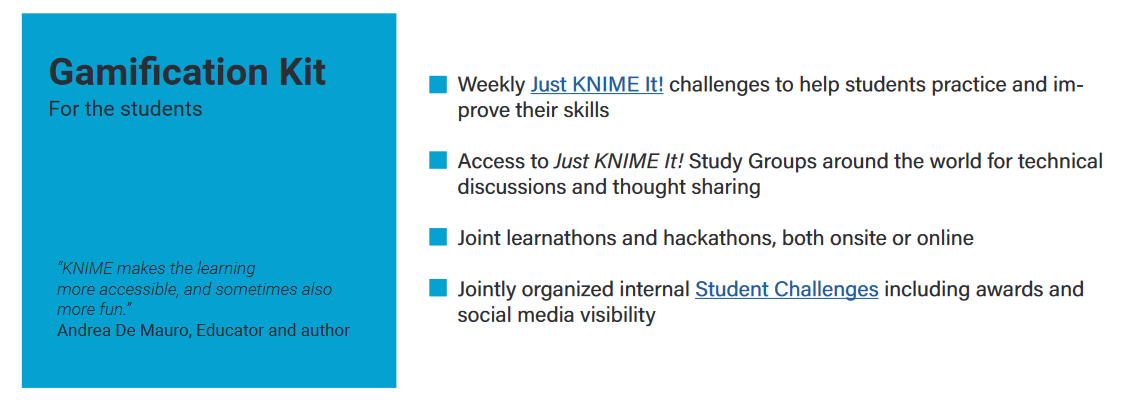
To give you more of an idea of what the challenges entail we have collected a few examples of upcoming hackathons and previously held student challenges, targeting both graduate and undergraduate students and held in the US and Europe. Let’s take a closer look at how they were designed, what was the expected outcome, and how we celebrated students’ efforts.
Hackathons in the USA: Let’s start the countdown!
From east to west, hackathons are popular. There will be two hackathons held in the USA during the second half of 2023.
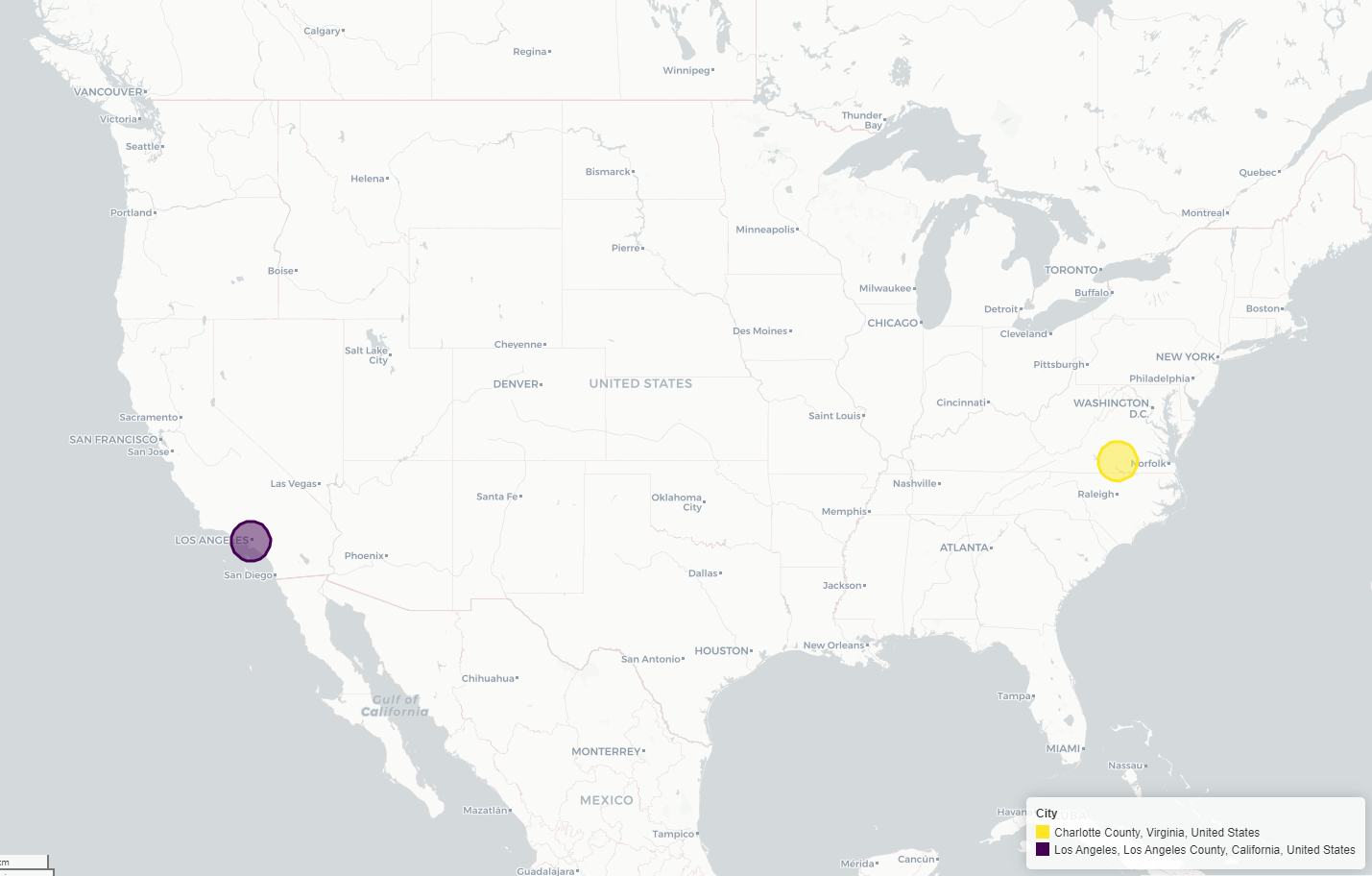
A hackathon is a competition among teams of students held over two days, usually a weekend. Within these two days, teams are formed, problems are identified, and solutions are implemented. Hackathons usually follow a consistent design: teams are either all assigned the same data problem, or are granted the freedom to come up with their own. In either design, the ultimate goal is to develop an ad-hoc analytic solution.
The judging committee, composed of school/college instructors and the KNIME team, sets the evaluation criteria, reviews the teams’ projects, and awards the best ones.
Hackathons are somewhat more open to the general public, since students in the same age range but from external courses/schools can participate. Due to logistic constraints, a maximum number of students is usually allowed and registration is required.
Charlotte (VA, USA): Future Health Pioneers: KNIME Digital Health Innovation Hackathon – Commonwealth Virginia University (VCU)
This virtual hackathon, Future Health Pioneers, takes place on June 17-18 and is organized by Prof. Dayanjan Wijesinghe from the School of Pharmacy at VCU in Charlotte, VA (USA).
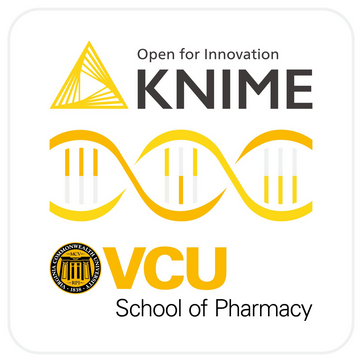
The goal of this hackathon is to enable healthcare professionals to embrace the advancements in new technologies and harness their potential: From personalized medicine to predictive analytics, digital health is breaking new ground and improving patient outcomes. The ability to analyze vast amounts of data has led to enhanced diagnostics, targeted treatment plans, and a greater understanding of population health trends.
The hackathon targets graduate and undergraduate students in healthcare in the United States. Students are expected to work in teams of three, tackling one of the five proposed digital healthcare problems. All projects submitted on time will be individually assessed by a panel of five judges first. The individual scores will then be averaged and discussed among the judges to identify the winners of the hackathon.
Tip: Read more about the “Future Health Pioneers” Hackathon on the VCU website.
Los Angeles (CA, USA): MindSpark 2.0 Hackathon – University of Southern California (USC)
The second hackathon, MindSpark 2.0, scheduled for September 24-25, will take place at USC in Los Angeles (USA), and is organized by the student committee GRIDS together with Prof. Saty Raghavachary from the Department of Computer Science at Viterbi School of Engineering.
More information will be released about this hackathon soon!
Student challenges are Europe’s favorite
While hackathons seem to be popular in the USA, Student Challenges are Europe’s favorite option to gamify learning. In 2021-2023, KNIME collaborated with universities to mentor and assess students in virtual and local challenges.
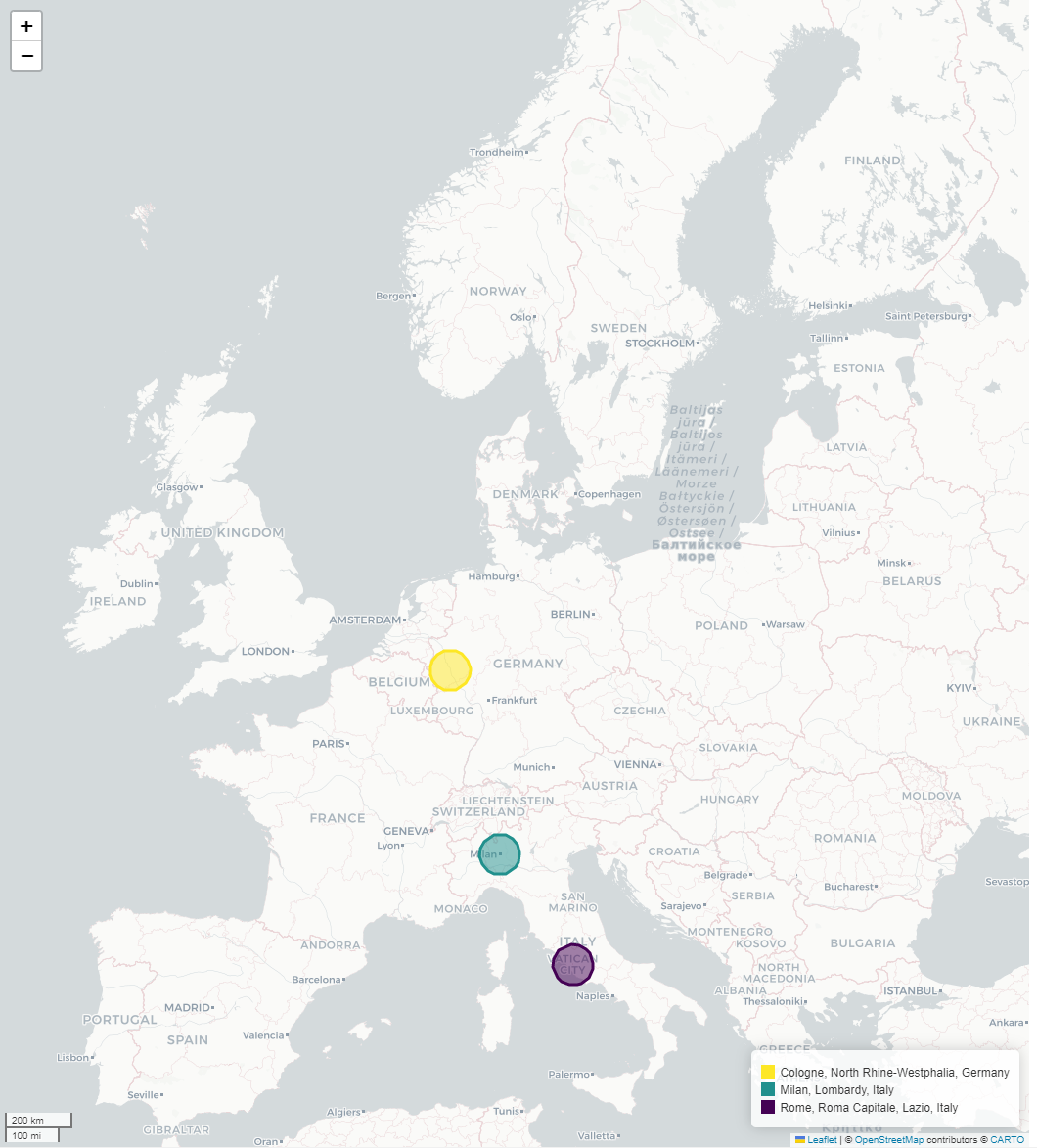
A challenge usually consists of a predefined problem, to which students, organized in teams, are required to provide an ad-hoc analytics solution over a relatively long period of time. Because of the extended completion time, spanning a few weeks up to a whole semester, student challenges are usually integrated in an existing class/course, are tailored to meet the specific course requisites and learning outcomes, and may involve the cooperation of other industry players.
The judging committee, composed of the course’s professor and the KNIME team, sets the evaluation criteria, reviews the teams’ projects, provides feedback to shortlisted teams, and awards the best ones.
Unlike hackathons, which are open to the general public, student challenges are designed for students on a specific university course. There are usually no constraints in the number of participants and no formal registration is required.
Milan (Italy): “Machine Learning Challenge” on Diabetes Prediction, University of Milano-Bicocca
At the University of Milano-Bicocca (Milan, Italy), Prof. Fabio Stella organized the “Machine Learning Challenge” to predict the onset of diabetes within the scope of his grad course in “Machine Learning”.
The challenge required a data app for data visualization, a machine learning model for the prediction of diabetes, and a report for the documentation and explanation of the adopted methodology. Projects were then evaluated based on: best model performance (30%), cleanliness and usability of the workflows (20%), and clearest explanation in reporting (50%).
The challenge was announced to the students in December 2022 and teams had roughly two months to design their solutions. The judging committee, based on the previously listed criteria, identified the top six solutions, provided feedback for improvement, and scheduled a final presentation for the six shortlisted teams.
After the final presentation, the original score was integrated with a second score, quantifying the quality of the presentation, the amount of feedback implemented, and the overall improvement of the solution. Based on this new score, the top three winning teams were finally selected in March 2023 and awarded during a KNIME Data Connect event.
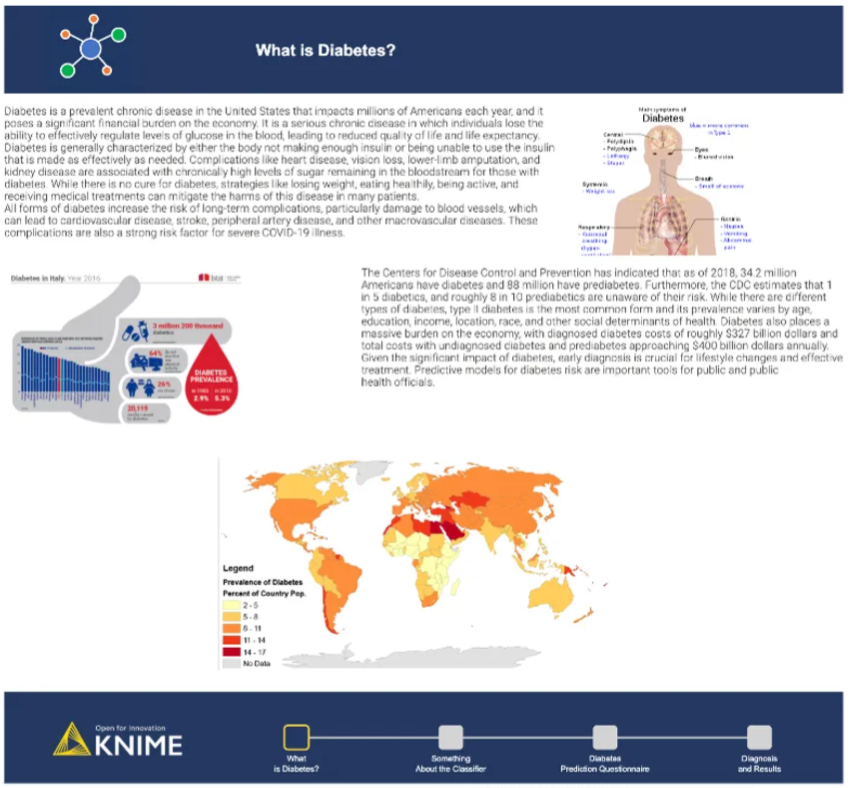
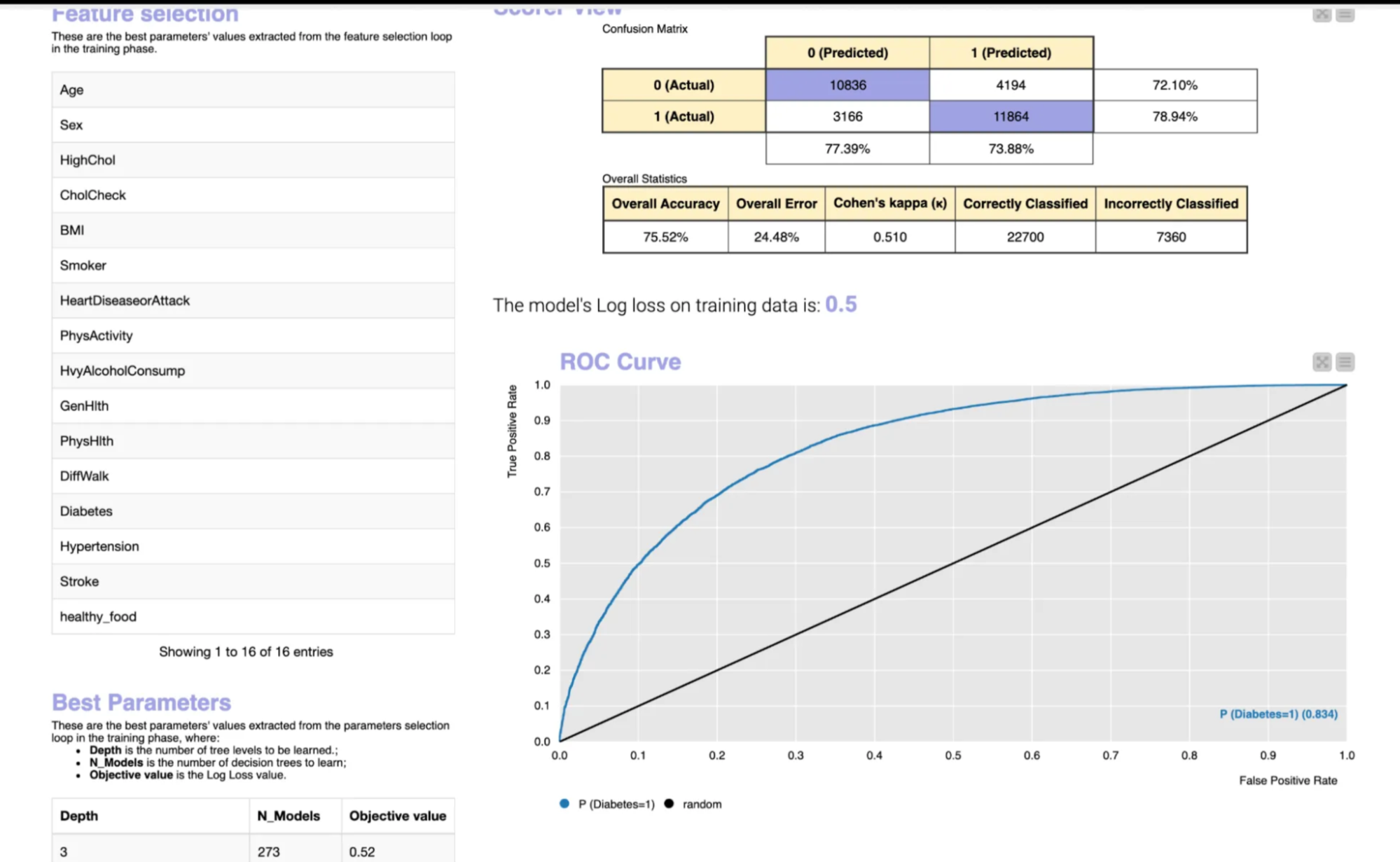
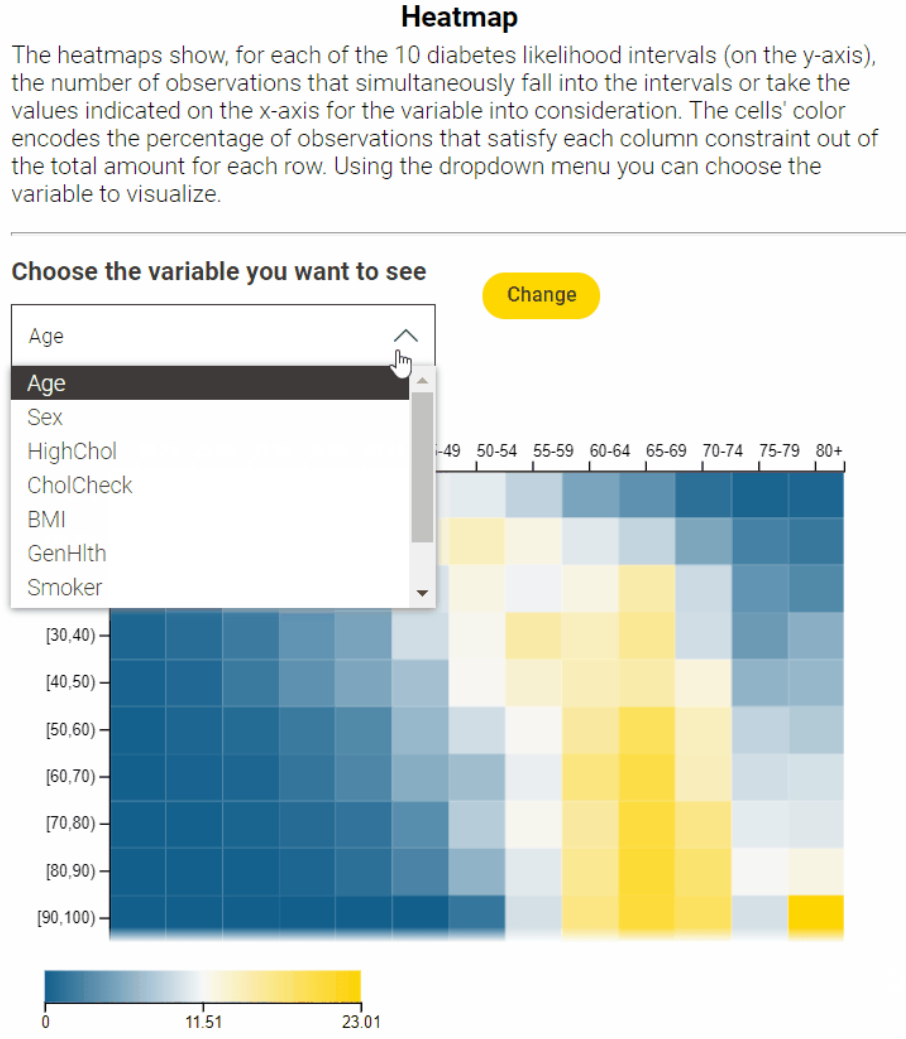
The winners of the challenge were announced at an award ceremony, which was posted to YouTube, and celebrated in the article UNIMB & KNIME announce winners of ML Challenge.
Cologne (Germany): Data Science for Business Challenge “Finance & HR” – Cologne University of Applied Sciences
At Cologne University of Applied Sciences Data Science for Business Challenge “Finance & HR” was announced in October 2022 and concluded in March 2023.
In agreement with Prof. Tobias Schlüter and a group of industry players, a list of real business use cases in social media analytics, insurance pricing, and job market analytics was identified.
This gave the students the opportunity to implement advanced analytic solutions and work closely with stakeholders from the collaborating companies on different issues of risk, pricing, social media, and job market.
The teams that developed solutions in “Job Market Analytics” and analyzed the German job market for data science professionals ultimately outdid other teams and secured the victory.
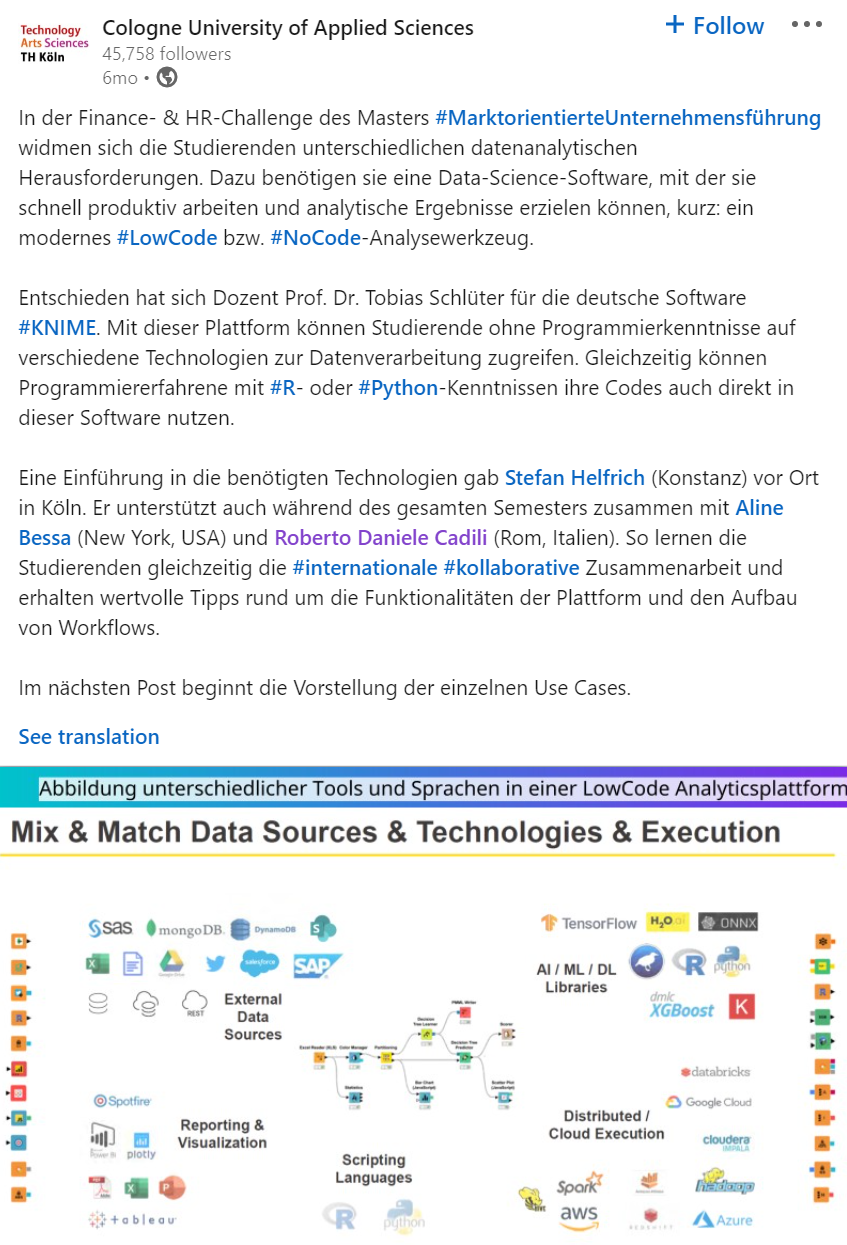
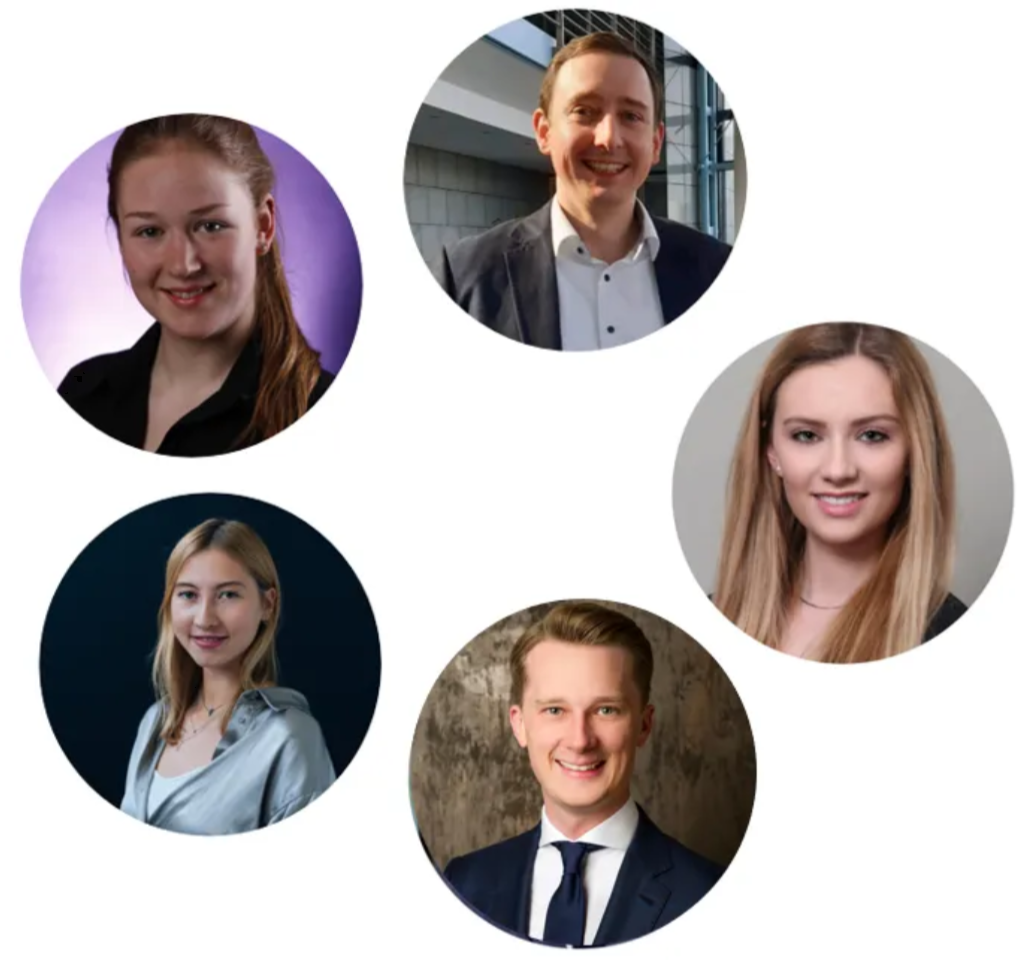
The Data Science for Business challenge was published and promoted on the university website. The winners were celebrated in a My Data Guest interview.
Rome (Italy): Business and Marketing Challenge “Analytics in Creative Industries” – LUISS Guido Carli University
At LUISS Guido Carli University (Rome, Italy), in agreement with Prof. Francisco Villarroel, we left the selection of the problem to solve to the teams.
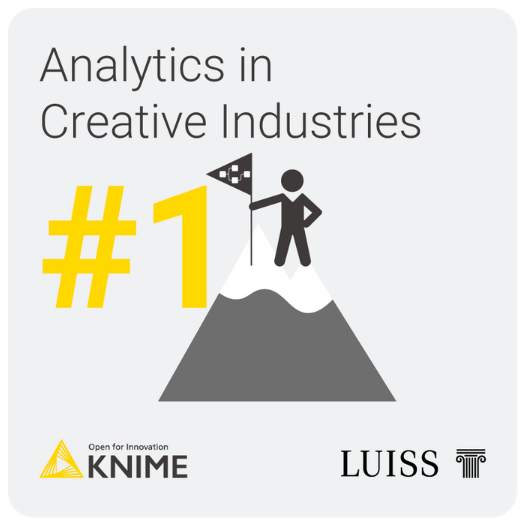
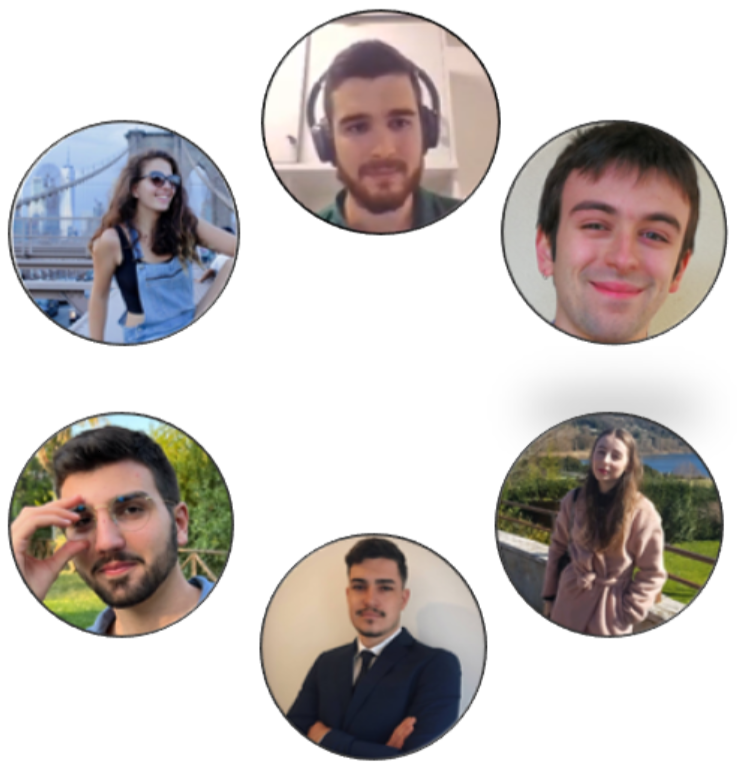
In the “Analytics in Creative Industries” challenge, each team had to find its own topic or pick from a list of industry use cases (e.g., film, books, social media), find a suitable dataset, extract insights, and draw conclusions from the analysis. This, of course, added an extra level of complexity to the challenge experience: the search for or the choice of a meaningful yet solvable data science problem and a related dataset.
The students performed very well and were able to identify areas of research with interesting and challenging problems in need of a solution.
For this challenge, students had a few weeks to complete the task and implement either a data app or a predictive model, or both. The judging committee shortlisted six projects and awarded the top three of them after a final presentation.
The winners were announced during the award ceremony, which is also available to watch on YouTube. To celebrate their win, they were also invited to an interview as part of the My Data Guest series.
Celebrating the Winners in an Award Ceremony
Be a hackathon or a student challenge, they both have winners and team awards. Below you can see some moments of the various award ceremonies, some onsite and some online, as captured on camera.
The “Machine Learning Challenge” on diabetes prediction at the University of Milano-Bicocca
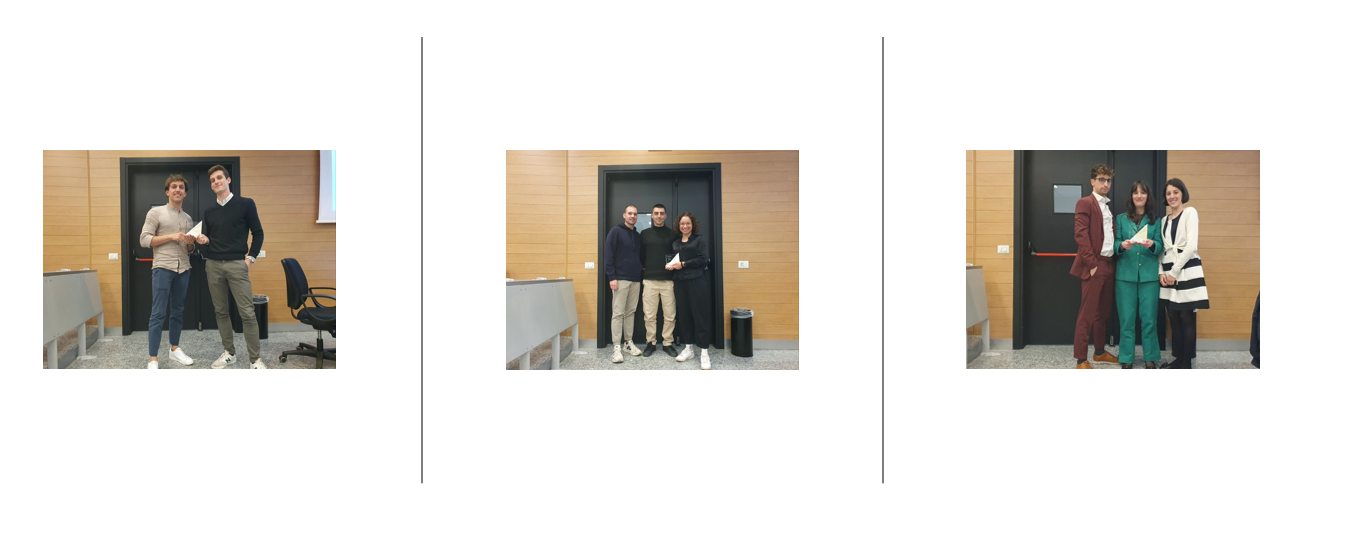
The business and marketing challenge “Analytics in Creative Industries” at LUISS Guido Carli University
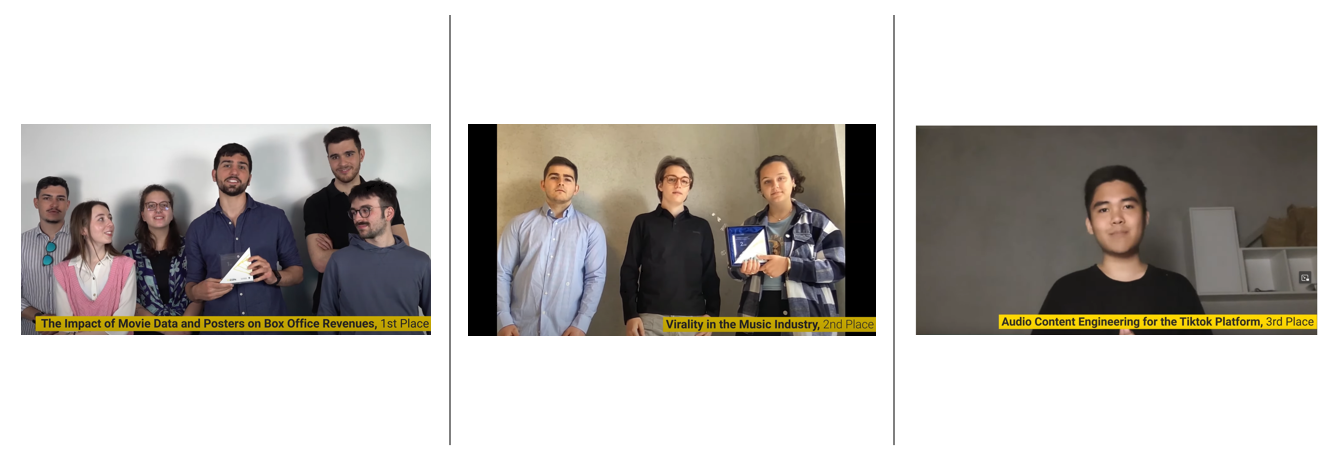
Apply now!
Whether you are a student or a lecturer, whether you prefer a challenge or a hackathon, we, the itinerating judging team of the KNIME Gamification Kit, would be happy to work with you on the next competitive event. We have plenty of problems and we are looking for solutions. Access the form to apply here.
